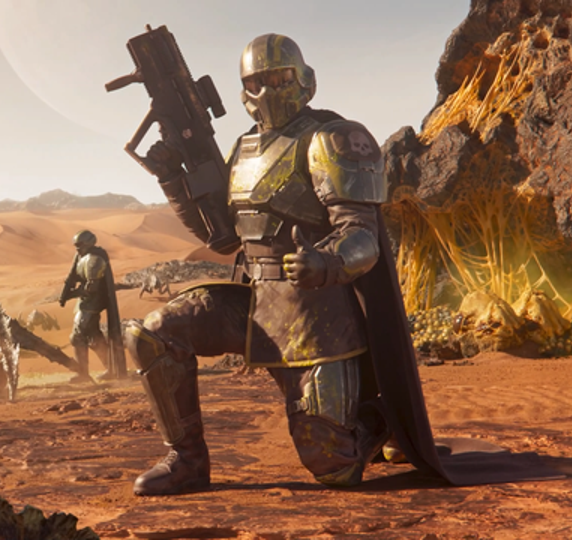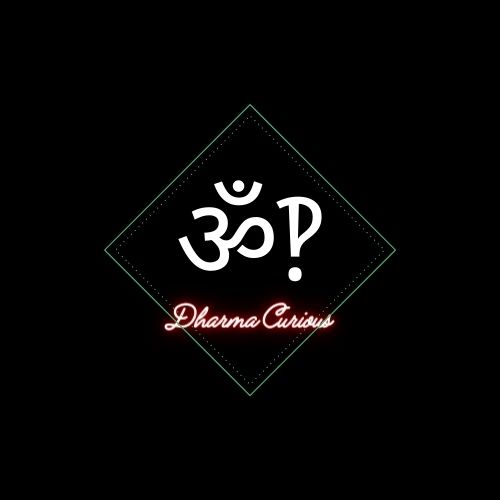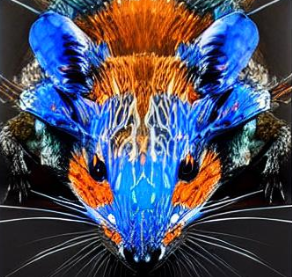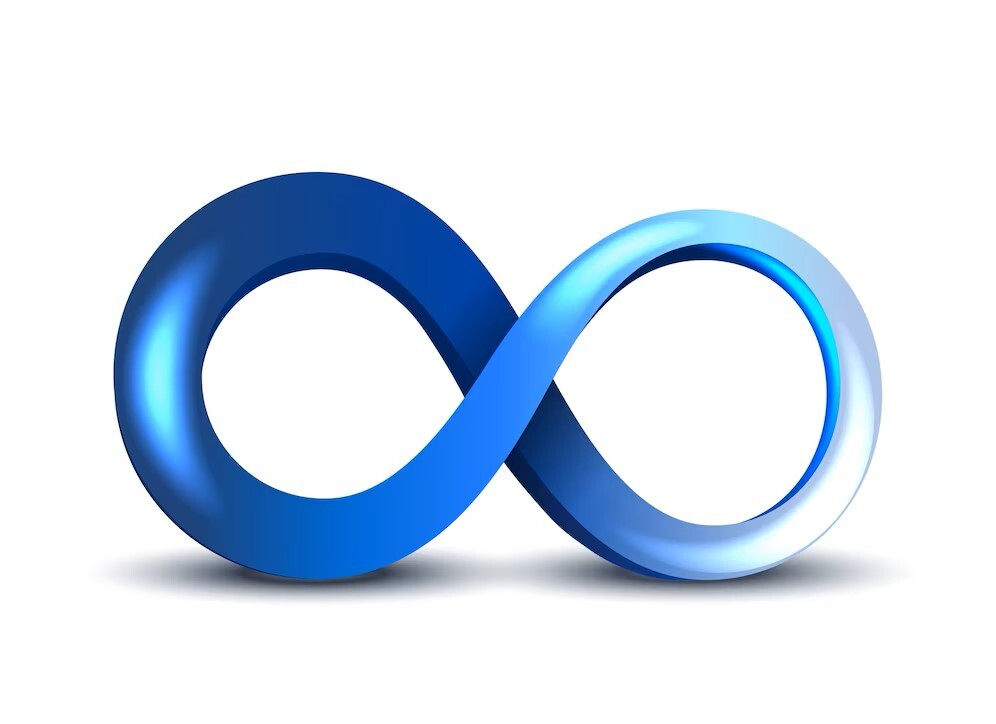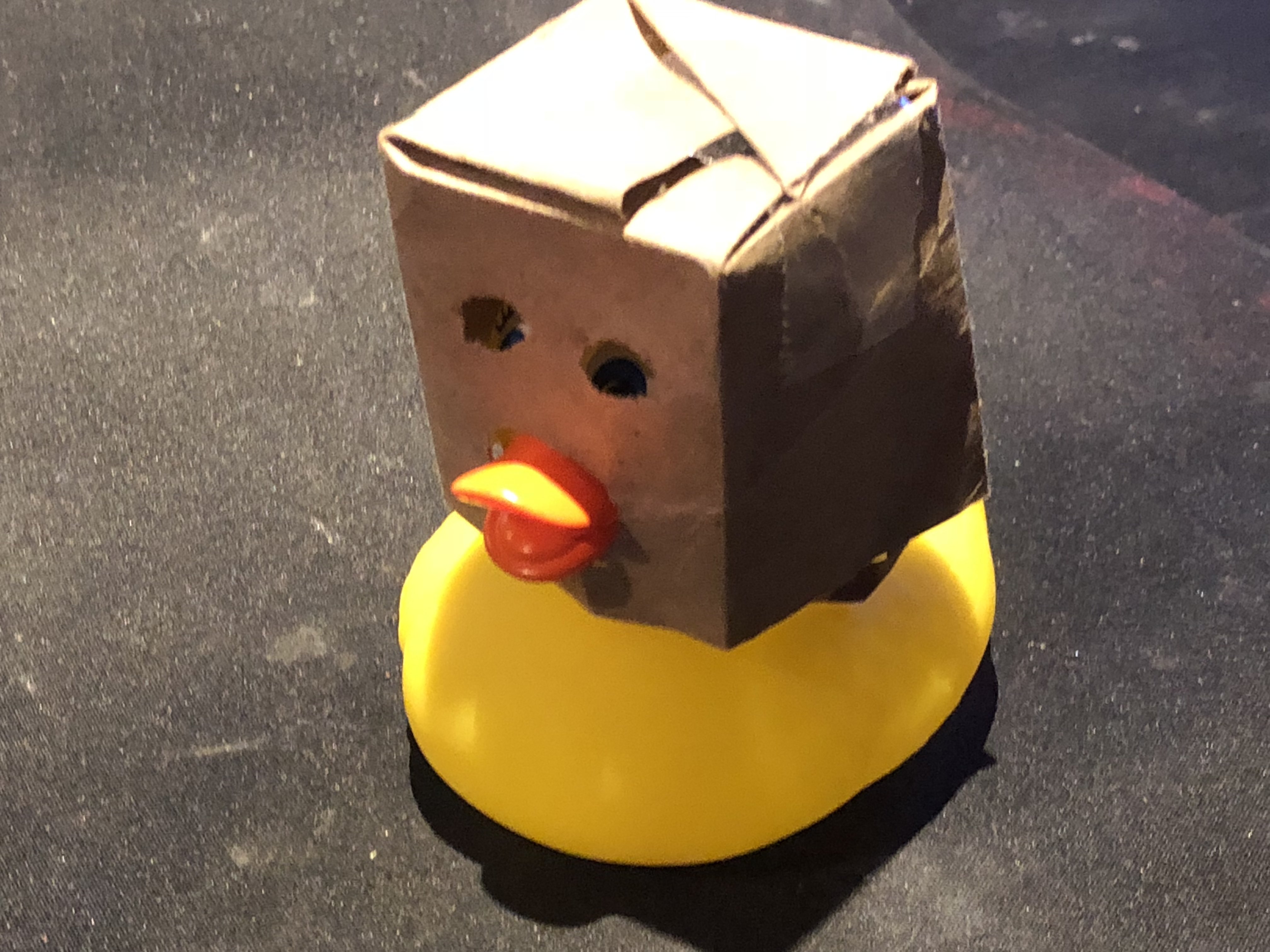Just to be well and truly fuckin clear. I am not now nor have I ever been nor will I ever be contemplating shagging a family member.
Human genes only really “work as intended” when they are combined from very different sets.
So-called “recessive” genes are overruled by your partner’s different pile of genes. They are usually shit traits like soggy bones or hair growing backwards, but since they never dominate, they haven’t been naturally selected away. They’re just harmless baggage.
You can still get them because it’s all random, but the likelihood is generally low.
If you don’t have that difference in mating genes, more of these recessive genes get to have a say in building the human. This severely increases the likelihood of birth defects.
https://en.wikipedia.org/wiki/Inbreeding
Fun fact: This is one of the reasons why - when we start colonies on the Moon or Mars or wherever - it’s important that we send a fuck ton of people.
Well, there’s a new insult: “You soggy-bones looking mother fucker.”
Drink milk
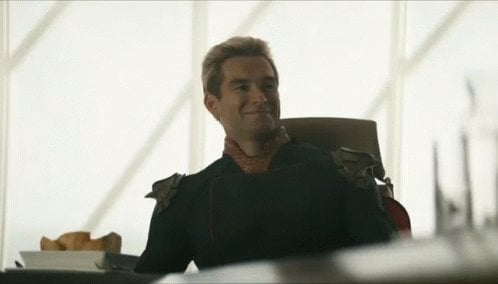
Can’t wait for next season
GenV wasn’t good enough.
That just reminded me of the only community I really miss from reddit, r/neverbrokeabone. Lemmy just doesn’t have the number of users to support such a niche community.
But yeah, there were all sorts of good insults there for when people broke a bone. “Soggy-bones mother fucker” would have fit right in.
It’s 4 in the morning and I’m sick, got them albuterol inhaler shakes, and “soggy bones” made me laugh so hard I went into a coughing fit.
It was backwards hair that did it for me.
Or a fuck ton of, samples.
So, note for any women looking to colonize Mars, your womb will belong to the colony.
In any long term colony, with hard constrained resources, a lot of individual rights will have to fall below the collective requirements. The collective needs will have to supercede the individual. It’s a classic “Tragedy of the commons” situation, otherwise.
Mandatory pregnancy is likely not one of them however. More likely mandatory birth control, with all pregnancies being planned. There will also likely be strong incentives to widen the gene pool.
E.g. A couple might be allowed 1 child by default, with additional requiring either that they already have a useful level of general diversity, or that doner eggs or sperm are used.
Even simple financial incentives could achieve the same effects, if done right.
Those of you women living in U.S. red states will be familiar with the feeling.
Not necessarily true. Presumably there would be a terms of service you’d know about before takeoff. And any of it could easily be voluntary rather than mandatory.
Yes. Nonetheless, I’d like to direct you to watch a scene in the series It’s always sunny in Philadelphia named “the implication” and try to apply it to Mars.
Each person sent costs a fuckton of fuel. Do you think they’d waste it on someone who will not contribute to expanding the population?
That was the point. It can be like voluntarily giving up rights by joining the armed services.
Then science better get going on artificial, external wombs. A lot of people would be overjoyed to be able to have kids without the physical risk of pregnancy, and the technology seems like it’d be mandatory for true colonization efforts
Ok, but why are recessive genes necessarily bad?
Or, they probably aren’t, but it turns out when you activate them you get more bads than the goods. Why is that?
Good question!
They aren’t necessarily bad as such, just “random and unfiltered”.
Dominant genes get “battle tested” all the time, by definition. The harmful ones are likely to result in a human that can’t survive or have children, while the good ones remain.
Recessive isn’t always bad. In fact, many (maybe all) genetic traits have a dominant and a recessive information.
For example peas. Let’s say there is a gene for colour. The dominant variation of the colour gene carries the information “green”. Let’s call this gene c for colour. Then there is a recessive variation with the information yellow.
We’ll write the dominant information as capital C and the recessive as lowercase c.
Now there is a pea with the genetic information CC (one from each parent). That’s a green pea.
Then there is one with Cc (father green, mother yellow). But you see the pea and it looks just like a green pea. Because the green gene C is dominant and the yellow c is recessive. You don’t know, that this is a mixed variety.
If two seemingly green peas pollinate each other, but under the hood, they are Cc, then they might produce a cc yellow pea.
For a lot of genetic information that’s not a problem, they are just different characteristics and not harmful.
But if you have B = your blood coagulates normally, and b = your blood doesn’t thicken, you just bleed out and die when you have a paper cut…
Then inheriting b from both of your parents is a terrible fate.
This happened in the House of Saxe-Cobourg and other nobility in the 19th century.Edit: the last part is actually a bit more complicated, but the explanation of dominant and recessive still works.
For mars, they could do whole-genome sequencing and select for people with fewest deviations from the de facto wild-type human genome.
That sounds unsettlingly like eugenics.
Yea but Mars is not the right place to just wing it.
I don’t know that I agree. Or rather, I agree, but come to the opposite conclusion.
I think that as we take our first steps into the broader universe, we have to consider the ethics and morality that we’re stepping out with. If we choose people based on (let’s face it) arbitrary genetic variation, independent of their ability to perform the tasks assigned or their representative value to the human race as a whole, that means that as we plant our flag on the Martian soil, we’ll be taking eugenics with us.
The minimum viable population of a species is about 50. In order to prevent genetic drift over time you need closer to 500, but we’re sapient; we can implement genetic therapies when needed to help maintain allele frequency while the population is growing. And, in reality, operating a long-term Martian colony is probably going to need more than 50 people anyway; a recent NASA study suggested 25 would be enough, but previous research said 100+ would be necessary.
And keep in mind, an actual Martian colony doesn’t have to be self-sustaining in a complete vacuum (ha) for centuries. It will probably be only a generation or two before regular travel between the two planets will be possible. Plus, if we build and maintain a lunar colony first, the initial population of a Martian colony can be much larger.
In short, I think I’d rather work harder and send more people so that we can ensure we’re maintaining our values, than allow such a retrograde idea as eugenics to poison our first venture toward being a multi-planet species.
Many birth defects are rare, and require 2 copies of a defective gene to show up. Most “normal” people will be carrying a few defective genes (out of thousands of pairs), but are fine because they have a good copy still working.
Family members tend to have similar genes.
The chances of you and a family member having the SAME defective gene are massively greater than you and some random stranger.
Thus any child would also have a massively greater chance of inheriting 2 identical copies of the defect.
Say you’re doing homework and you want to compare answers with a friend. But you didn’t do your own homework, you copied most of it off Dave. So you compare with Sara, and if there’s any errors that Dave made or Sara made you have a chance to catch and fix them. But if Sara also copied off Dave, you’re not gonna catch those mistakes.
Similarly, you have two sets of chromosomes, and for each “gene” (homework problem) you have genes (answers) that are more or less dominant. Bad genes that kill or impair you tend to be recessive, because if they are dominant the carrier doesn’t survive. So it’s all right if you have one copy, because it’s not expressed. But if you have two copies…
Slightly more correct to say alleles are the “answers”
A gene is a spot where the DNA usually codes for something, where an allele is the particular version of a gene carried by an individual.
When combining two genetic codes you don’t have a way of predicting and selecting what’s good and what’s bad.
Similarly to doing a homework, if you got two copies from two different people and their solutions are not aligned it could mean that one of them is right, or they’re both wrong, or they’re both right, cuz there can be multiple ways to solve a problem, even a math one. You need to be able to circle back and discuss solutions with both of them to understand which one is correct. You do not have this mechanism for genetic cross-over.
Coincidentally, two people can be wrong about something together. School assignments were notorious for setting up traps that everyone would fall for.
TL;DR comparing answers and picking “only matching answers” doesn’t seem like a necessarily better path.
I explained that in the second paragraph. You get genetic defects even without inbreeding, sure, and you get wrong answers on homework. But you’re more likely to catch wrong answers if two people worked independently, and you’re more likely to have a healthy set of dominant traits when people marry outside their community.
To reiterate: Inbreeding allows for greater expression of recessive traits. Recessive traits are more likely to be disadvantageous than dominant ones, because dominant traits that pose disadvantages are winnowed out by natural selection, whereas recessive ones can be carried unexpressed and passed to the next generation.
A good example is cystic fibrosis. We found out my wife is a carrier. If I was also a carrier, there’s the risk a child could have cystic fibrosis, which would prevent them from surviving long enough to reproduce. But since I’m not, there’s merely the concern that she passed on the carrier gene to our children. It doesn’t affect their survivability at all, and they will live to be the chance to pass on the recessive carrier gene themselves.
Swiss cheese theory.
Genes code for all the differnet protein molecules in your body; if any of them are damaged, they don’t produce that particular protein and your body is all messed up.
This is bad. Luckily, you have two strands of DNA, one from either parent - and a copy of each gene on either strand. If the copy of the gene you need on strand A is broken, no problem, you just use the copy from strand B (or vice-versa).
However, this relies on both strands having all their broken bits in different places.
Think of a slice of swiss cheese - if you need 100% cheese cover on your sandwich, and you have two randomly-selected pieces of swiss cheese, all the holes are going to be in different places, and you’ll probably be fine. Maybe there’ll be a couple of tiny gaps, but you’ll probably get by.
However, if both slices come from right next to each other n the same block, then most if not all the holes are going to line up with each other, and you are fucked.
If you had to repopulate the earth from a mass population decline… Would cloning better or inbreeding?
Cloning would avoid swiss cheese problems?
Cloning would be worse!
Cloning creates identical people with identical DNA. Identical DNA, identical defects, repeated over and over through the colony of twins, triplets, etc…
But it’s a small margin of improvement. Both cases, if the population pool is too small, you’ll eventually end up with sterility, severe mutations, and very early deaths, end of colony within a few generations.
If we had a massive population decline, yet, we did not have a global infrastructure collapse (so, magic instant death) then I believe some of the survivors would pretty quickly realize they need yo go find the cold storage of tons of semen samples.
Ah yes, mad max but not fighting over oil.
It’s called Hell Comes to Frogtown
I would’ve said Creamerie
Wow. Never heard of this. I’ll ad it to my distopian watch list
If the total population of a species falls below a certain threshold, that species is doomed due to low genetic diversity.
One last-ditch attempt would be to interbreed with a closely-related species, so the best (as in, has a .001% chance of working) option in this case might be to locate a willing chimp.
Tiny chance of working, plus even if it did the offspring may be sterile. So people would just be out there fucking chimps for no reason.
Don’t crush their dreams, man
It would delay them I guess, but unless you plan to clone everyone forever, it wouldn’t be a longterm fix. The genepool wouldn’t get any bigger, so once your population did breed, you’d have the same problem.
I am a carrier of CFTR mutations. If I knock up a random woman theres a 1 in 80000 chance of the child having cystic fibrosis. If I knock up my sister theres a 1 in 16 chance instead.
I’m being pedantic, but if you know you’re a carrier (and don’t know the carrier status of your sister) then it is 1 in 8
You are correct, and i did realize this some time after posting I’m just too lazy to edit it.
This guy does the math before mating with sis.
I have a disease that is autosomal dominant (and absolutely sucks.) That means only one gene (the one I got from Dad) was needed to give me the disease.
Now I have 2 of these genes. Everybody does. You get one from your mother and one from your father. So I got the bad one from Dad, and a good one from my mother.
It’s a super rare disease! If I nail somebody at random in the population, they have 2 good genes they can contribute. My one bad one and one good one flip a coin; our kids could have a bad one from me (and die young) or a good one from me (and be fine!)
But if I nail a brother who had the bad gene, there’s a coin flip for both of us. Even if I give a good gene, he might give a bad one! Way more likely the bad thing happens.
(So, so grateful none of my brothers have it so I don’t have to get all squicked imagining that but it makes my point.)
Not all bad things are as easy to see as my disease. Lots of them “hide” until you get two bad things. But it’s more likely two siblings have similar hidden bad things, which makes it more likely the bad things will show up in their child.
I’ll try to keep it relatively simple - your cells contain chromosomes that contain your genes. You usually* have two sets of every chromosome.
These genes come in different variations/mutant forms called alleles. Most alleles function more or less the same, but some malfunctions result in deformities.
If a malfunctioning allele results in errant gene inactivation, it is known as recessive, which means as long as your other copy works, you’re all good.
If a malfunctioning allele results in an errant gene activation, it is known as dominant, which means if you have the allele you get the deformity regardless of if your other copy works or not.
Fortunately for life, most malfunctioning alleles are recessive, so as long as you’ve got high genetic variance (a lot of alleles) in a population, the chance of two people meeting with the same recessive malfunction is low.
Incest can result in a drastic decrease in genetic variation, which can result in malfunctioning alleles becoming much more prevalent than they usually would be, resulting in many more cases of recessive deformities than in the wider population.
*For males this is not true of their sex chromosomes. Many genes present on the X chromosome are missing on the Y chromosome, which can lead to sex exclusive traits and diseases.
For example, it is the reason why there are almost no calico/tri-colour male cats, as the genes for it are in X but not Y chromosomes.
For example, it is the reason why there are almost no calico/tri-colour male cats, as the genes for it are in X but not Y chromosomes
And the male calicos that exist actually have Klinefelter syndrome, where they wound up with an extra X chromosome, making them XXY instead of XY.
And so the reason for malfunctioning alleles not to be dominant is probably natural selection. E.g. you select away bad dominant alleles, but if we assume a low pct of inbreeding, the recessive ones are irrelevant and so they stay.
Pretty much…
Recessive malfunctions can hide away amongst carriers for generations before manifesting any deformities, during which time they have no effect on the carrier’s survival, so there’s very little selective pressure against them.
Dominant malfunctions which cause deformities simply can’t hide away, so have enormous selective pressure against them.
Interestingly enough though, there are times where dominant malfunctions can survive that pressure…
For example, having Sickle cell disorder increases your resistance to Malaria, so even though the full form is rarely passed on, the single allele form (which caused partial disorder) is passed on due to a slight positive selection pressure.
Genes mutate.
If you have one copy of a mutated gene, it could be bad. However, one mutated gene is usually recessive or will be co-dominant with the other gene so it isn’t that bad. If you have two copies of that gene, it can be a lot worse.
Two close family members are more likely to have the same mutated gene, so the odds of getting that same mutated gene twice are a lot higher.
It’s mostly a game of chance.
Grossly oversimplified: Say you have black eyes, but carry a blue-eye gene (which doesn’t show because black is dominant). There’s a very good chance your sibling carries the same gene. If the two of you have a child together, there’s a higher chance that the kid will carry double blue genes and has blue eyes.
Had you had the kid with another black eyed person that’s not a sibling, there’s a higher chance that they may carry different genres (black, grey, brown, green eyes). So much lower chance of having a blue-eyed kid.
Imagine the same but with all sorts of physical and mental defects. They may not show in you, but if you carry the genes, there’s a good chance your sibling does too. Hence the higher chance of it showing up in your kids.
Even if the trait doesn’t show in your kids, over generations of inbreeding practice (common in old royal families) the bad genes would be so concentrated in the pool that so many defects will start showing up.
Many families have recessive fucked alleles that cause all kinds of problems. An allele is a variant of a gene. You need two copies of a recessive allele for that gene to be expressed (do something).
Every fucked allele the parents share has a 25% chance of being expressed in the child. The more DNA the parents share the more fucked alleles they share. Usually… sometimes the opposite happens and the number of bad alleles is reduced in the child. Inbreeding can lead to fucked animals and “perfect” ones. Weird stuff.
Now you might be thinking “why do families have so many fucked alleles?”
That’s a good question. The thing about carrying a single recessive, fucked allele is that it doesn’t do anything to you. Mutations happen all the time and so these alleles are floating around and multiplying constantly.
It’s only a problem on the odd chance that they get expressed which is most often when family members produce offspring.
So it’s worth noting that this is the type of thing that we can check for these days. In some cultures it’s acceptable to marry a cousin and I’ve heard that they check for any genetic issues before proceeding when they live in a first world country.
First you need to understand the difference between a dominant and a recessive gene. Dominant genes manifest if they’re present, recessive genes manifest only if there are no dominant genes present. A quick example is blood types, 0 is recessive, both A and B are dominant, you have two genes that specify your blood type, if both of them are 0 you are type 0, any other combination with 0 you’re not 0, i.e. 0A or A0 are A, while 0B or B0 are B. This means that a person with blood AB can’t have a son with blood 0, because his son will either have one A or one B inherited from that person.
Genetic diseases that happen because dominant genes are hard to miss, if you have the gene you have the disease, however genetic diseases that need recessive genes can be carried for generations without anyone manifesting symptoms. But of two persons have the same recessive gene it’s quite possible that their children will have both of the genes be that one and manifest the illness. The chances of two random people having the same recessive genes are quite slim, but the closer people are genetically the higher the chances that they have the same recessive genes. Using blood type as an example, if a parent is AB and the other is B0 their children have 0% chance of being 00, but they have a 25% chance of being A0 and 25% chance of being B0 (the other 25% being AB and BB). Now if their children A0 and B0 have a child of their own that child has a 25% chance of being born 00, whereas if any of them had a kid with a AB, AA or BB the chances would be 0%.
Does this mean that blood type O will become rarer over time and eventually disappear? Does it also imply that someone, like me, who is O- has a family tree with fewer branches on it than most people?
It is possible, but genetics is far more complicated than this. There are also the epigenetic factors for gene expression that is a field of ongoing research. Nothing is ever actually as simple as the example but it is a good example for illustration of the concept.
Recessive alleles like the O blood type are preserved when paired with a dominant allele. So parents that are AO or BO can have children that are OO. The recessive allele’s effects are suppressed, but it doesn’t disappear. It keeps popping back up in future generations. That was one of Mendel’s key discoveries.
The frequency of alleles circulating in a population is affected by drift and selection. Assuming no or very weak selection against type O, it’s a matter of chance each generation if there are fewer or more children with type O alleles. The O allele could drift to 100% (also called being fixed) or to 0% by chance. This takes a very long time when the effective population is large but is faster for small, isolated populations. There are some variant alleles that are circulating in humans which have been there since before our split with chimps and gorillas.
The largely mathematical field that studies this is called population genetics.
Humans are diploid. We have 2 independent copies of every chromosome in each cell, one from each parent. They function as “backup” copies. If an error is on one, as long as the other one has a good copy of the effected gene, nothing happens. However, if parents are related, it becomes possible to receive two identical (or nearly identical) copies, and lose that backup. In that case, any error/mutations will cause problems.
Resistive genes play a huge part, plus any transcription errors the are passed down don’t have a chance to get skipped with inbreeding
I manage a small closed queen breeding program and we have to try very hard to keep as much variation as possible
Interestingly, some species (naked mole rats for one,) are fairly immune to the problem.
If you selectively inbreed for long enough, the deleterious alleles are weeded out by selection. This is true for strains of laboratory mice, but not for any royal families that I know about.
Every person gets their genes from their mom and dad, however certain traits (defects, if you will), are present in everyone. Thats why we have mental illness and birth defects. However, you isolate a gene pool, and those bad traits get more and more focused. For example, their is a family known as the Blue Fugates who have been doing incest since the 19th century, and now the family has a blood defects that makes their skin blue.


